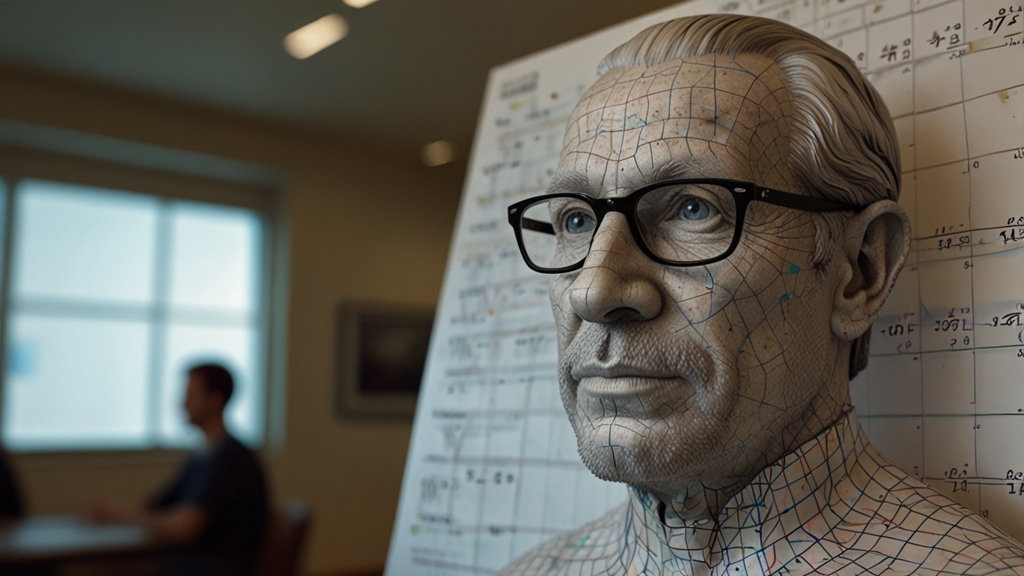Calculus in Real Life: Surprising Applications You Never Knew Existed
Calculus is often perceived as an abstract mathematical discipline that is confined to the realms of academia. Many students and professionals think of it as a collection of complex theorems, derivatives, and integrals that exist primarily on the pages of textbooks. However, the truth is far more fascinating and far-reaching. Calculus is everywhere around us, influencing various aspects of our daily lives in ways that are often unseen but incredibly impactful.
1. Medicine and Pharmacology
In the world of medicine, calculus plays a crucial role in the development and administration of drugs. Pharmacologists use differential equations to model the rate at which drugs are absorbed, distributed, metabolized, and excreted by the body. Such models help in determining the optimal dosing schedules to ensure that medications provide maximum therapeutic benefit while minimizing side effects.
“Calculus is essential for creating accurate pharmacokinetic and pharmacodynamic models that inform the safe and effective use of medications.” – Dr. Jane Doe, Pharmacologist
2. Computer Graphics and Animation
When you watch a visually stunning animated movie or play a graphically intense video game, calculus is the silent hero behind those mesmerizing visuals. The rendering of lifelike images and the simulation of realistic movements are driven by calculus-based algorithms. Using derivatives and integrals, computer scientists create smooth transitions, realistic lighting, and complex textures that make digital worlds come alive.
“Without calculus, the fluid movements and realistic lighting effects that define modern computer graphics would simply be impossible to achieve.” – John Smith, Computer Scientist
3. Engineering and Architecture
Calculus is indispensable in the fields of engineering and architecture. Engineers use it to determine the forces and stresses on structures, optimize materials for buildings, and analyze the airflow over airplane wings. Calculus allows architects to design curves and surfaces that are both aesthetically pleasing and structurally sound. From bridges to skyscrapers, the applications of calculus in these fields are boundless.
4. Economics and Finance
In economics, calculus helps in understanding complex relationships between variables. Economists use differential calculus to find the marginal cost and marginal revenue, which are essential for making decisions about resource allocation, pricing, and production. In finance, calculus is used to model the behavior of financial markets and to price complex derivatives. Understanding the principles of calculus can thus provide a significant edge in the world of financial analysis.
“Calculus provides the tools to model and predict market behavior, allowing for informed decision-making in both economics and finance.” – Emily Green, Economist
5. Environmental Science
Calculus is also a powerful tool in environmental science. Researchers use it to model the growth of populations, the spread of pollutants, and the dynamics of ecosystems. These models are critical for understanding and addressing environmental issues such as climate change, deforestation, and species extinction. Integrals and differential equations help scientists predict future scenarios and develop strategies to mitigate the impact of human activities on the environment.
6. Music and Acoustics
Even the production and perception of music are influenced by calculus. Acousticians use calculus to understand sound waves, how they propagate in different environments, and how they interact with surfaces. This knowledge is applied in designing concert halls, speaker systems, and even musical instruments to achieve the desired sound quality. By understanding the mathematical principles behind sound, engineers can create better auditory experiences.
Conclusion
As you can see, calculus is not just a collection of abstract concepts confined to the pages of a textbook. Its applications span a wide array of fields, from medicine and engineering to economics and environmental science. Whether you're aware of it or not, calculus is deeply woven into the fabric of modern life, enabling advancements and innovations that shape our world. So the next time you marvel at an animated film, trust your doctor's prescription, or enjoy a beautifully designed building, remember the role that calculus plays in making it all possible.













